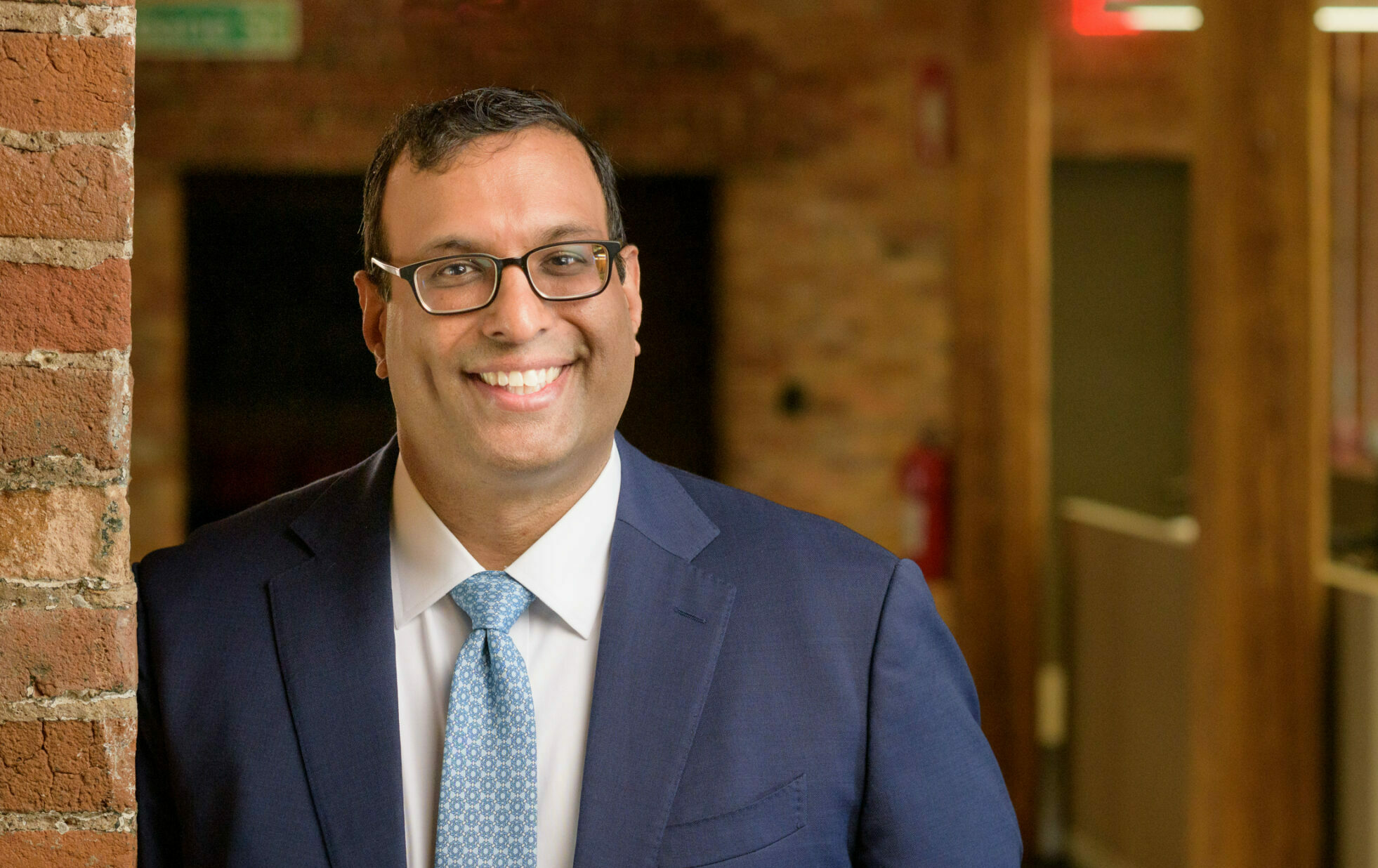We need a new global operating system for a future being shaped by powerful forces.
Is humanity heading for disaster? The world faces multiple problems and crises – and unless we seriously rethink our path forward, the consequences could be calamitous. We need to start by recognizing that our current global ‘operating system’ (OS) is no longer fit for purpose – in fact, it created the turbulence and uncertainty we presently face. A mere update cannot restore the widespread faith and acceptance necessary for true progress. What is needed is a re-architected OS for the globe – one that solves the problems which undermine the core of the current version, and steers us away from the cliff toward which we’re headed.
The process of designing this new OS will be iterative and unpredictable. Much will have to be designed on the fly, as new circumstances emerge. Yet by observing what we see as five extraordinary forces that have radically altered our lives, we can navigate in the right directions.
Understanding how these five tectonic shifts are unfolding should give us plenty of hints for designing a much needed – a much better – global OS. However we react to our current crises, these five Cs are set to dictate the future.
1. Covid and pandemic management
The first C hints at what could emerge from the collision of our complex and interconnected societies, living conditions and global systems. Even though the Covid-19 crisis is seemingly over, it has bequeathed a long list of ever-lasting ramifications, ranging from internationally co-ordinated crisis management (including arrangements that could help manage the next pandemic), to remote working arrangements, to changes in our day-to-day personal habits. Monitoring and identifying the ongoing consequences of Covid gives us a forward view as to how our lives will change and evolve.
2. The cognitive economy
We are seeing the emergence of a new era shaped by digital and biological technologies that cut across infrastructure and environment. Such cognitive tools are on track to substitute human decisions and tasks, spinning out ever more data and insights to fuel the thinking and learning machines that will become the engines of our societal and economic processes, contracts, and business models.
This goes far beyond the latest craze in generative AI. We are standing at the cusp of creating a new economic paradigm that is shaped and powered by Web3-based technologies, including blockchain and tokenization. We are witnessing the use of ever-more sophisticated sensors, as well as brain-computer interfacing devices that open up incredible possibilities.
As these technologies become ever more influential, we need to design a new system that distributes the benefits of the cognitive economy to everyone, not just to a few technology giants.
To see how the future unfolds is to understand how technologies work – especially when they are operating in combination.
3. Cybersecurity
Most people marked 24 February 2022 as the date that Russia invaded Ukraine. However, the first shot was actually fired the day before, in the form of ‘wiper’ malware that was aimed at Ukrainian government ministries and financial institutions. Interestingly, this was not first detected by intelligence agencies, but by Microsoft, 5,500 miles away in Seattle – underlining the role that tech giants play in our lives.
As digital technologies continue to make in-roads into every aspect of our lives, cyberattacks will likely go beyond infrastructure – and cybersecurity will be even more important when the internet and other digital systems reach into our bodies. The more we digitize our personal, societal, and business existence – including our own genetic codes and brain functions – the more enticing a target we become for cyberattack. We will constantly need to protect new flanks of deeper vulnerability.
4. Climate change
Climate change represents the single most urgent existential threat to humanity. The freaky weather conditions that are becoming commonplace – from record high temperatures in Europe, to heavy rainfall and massive floods in China – are perhaps the most visible indicators of the broader social, environmental and economic disruptions to come. Sadly, despite all the dialogues and conferences on the climate, we have yet to develop the real-time impact awareness, the political will, and the cooperation necessary to produce solutions at the global systems level.
This is a problem that governments cannot tackle alone. They must be joined by businesses and individuals if we are to keep climate conditions from deteriorating further.
5. China
Until very recently, China was poised to overtake the US as both a technology and economic superpower. Yet its economy is now struggling, due to varied factors including the war in Ukraine, tensions with the West and the Communist government becoming more hardline, vowing to eliminate private businesses and ownership. There is also a debt crisis brewing among the country’s largest property developers; a full credit crunch could rock the fundamentals of China’s banking system. The result could be a significantly weakened China, led by an unpredictable government. The decisions and actions it takes in the years to come will impact the lives of everyone on Earth – because no global systems re-design will work without a constructive China at the table. Tracking, understanding and forecasting China’s developments is key to see how the world’s future is being shaped.
The need for design activists
In our book, The Great Remobilization: Strategies and Designs for a Smarter Global Future, we argue that what we need right now is for more and more of us to become design activists: leaders who are willing to tear down that which is not working, gather the pieces that do work, and rebuild global systems for a better world. That goal requires us to develop stronger foresight, and hone the ability to understand the second and third effects of decisions and actions, not just the first.
Looking through the lens of these five Cs is the first step towards acquiring those capabilities.
Olaf Groth, Terence Tse and Mark Esposito are the authors of The Great Remobilization: Strategies and Designs for a Smarter Global Future. Dan Zehr is a research partner.



